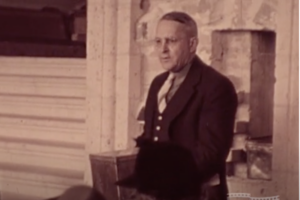AUSTIN, Texas — Five teams of students and faculty members are helping to have an impact on the world by addressing conservation efforts in India, skin cancer prevention in Singapore, water conservation practices in Jordan, early STEM education in Jamaica, and by studying the effect of social networks on undergraduates in Mexico. The teams are the winners of the 2020-2021 President’s Award for Global Learning.
The finalist teams were selected through a competitive process to pursue interdisciplinary projects directly affecting communities in major regions of the world. The winning projects, representing nine colleges and schools, were chosen from 33 proposals submitted by 128 students representing 10 colleges and 82 faculty members representing 15 colleges. The awardees will receive up to $15,000 toward project implementation costs as well as additional travel and academic financial support.
“By working together, students and faculty design, develop and carry out projects that put our motto — What Starts Here Changes the World — into action and deepen UT Austin’s global impact,” UT President Jay Hartzell said. “The President’s Award for Global Learning is an unparalleled opportunity to address the most pressing challenges facing our world today.”
A signature program of the International Board of Advisors, the President’s Award for Global Learning advances the university’s global engagement and enhances student learning with hands-on international experiences to forge leaders and innovators with robust cross-cultural knowledge. The research supported by the initiative aims to remedy issues in global communities and put these solutions toward similar challenges in Texas.
This year marks the third round of projects funded by the President’s Award for Global Learning. Since 2018, 12 President’s Award teams have tacked global issues in 10 countries throughout the world, researching potential solutions to reducing Texas’ maternal mortality rate by examining successful methods in the former Soviet republic of Georgia, creating a mobile application to address health inequalities for LGBTQ+ south Indians, and exploring the influences of colorism in Ghana and Texas.
“These exemplary projects illustrate the robust pedagogical and research expertise of UT faculty,” said Sonia Feigenbaum, senior vice provost for global engagement and chief international officer. “Together with motivated students, they will undoubtedly contribute to the quest of finding tangible solutions to real-world challenges. Each team of students, faculty leaders, and mentors will collaborate with in-country partners and thereby broaden the university’s vast global network.”
The 2020-2021 teams will begin their research in collaboration with in-country partners next semester, after which they will travel abroad during summer 2021.
2020-2021 President’s Award for Global Learning Winning Teams
Asia and Oceania
Conversations about Conservation: A Community-Based Research Study to Comprehend Public Engagement in Conservation Initiatives in India
Implement a community-based research model on local mangrove conservation efforts to emphasize the importance of collaborative approaches to climate change
Student team members: Emily Samson, Yukta Sunkara, Gauree Srinivasan, Sanjna Bhatia
Faculty team members: Jason Cons, Erin Lentz, Deepak Chetty
Graduate student team member: Sachin Dheeraj Mudigonda
Skin Cancer in Singapore: Using Augmented Reality to Promote Skin Cancer Prevention Efforts
Explore an updated approach to traditional public health initiatives through innovative communication technologies to distribute an interactive and experiential campaign about skin cancer prevention among young adults
Student team members: Neha Momin, Sahar Ali, Daniel Killough, Arman Farsad
Faculty team members: Erin Reilly, Lucy Atkinson, Thushani Herath
Graduate student team member: Sajani Patel
Europe, Middle East and Africa
Fostering Green Entrepreneurialism: A Comparison of Water Conservation Practices and Behaviors in Jordan and Texas
Compare campus water conservation efforts and overall water conservation technology and practice both in Texas and in Jordan
Student team members: Kisara Dang, Sumaya Daghestani, Abby Partridge, Tanya Raghu
Faculty team members: David Eaton, Lucy Atkinson, Jayme Walenta
Latin America and the Caribbean
Young Innovators: Bringing Inductive Learning to Early STEM Education in Jamaica
Catalyze the shift toward inductive STEM learning in Jamaican primary students
Student team members: Pearlyn Ang, Christopher Calizzi, Anthony Tang, Catherine Tang
Faculty team members: Melissa Kemp, Hal Alper, Brent Iverson
Graduate student team member: Bernard David
The Case for Connections: Understanding the Effect of Social Networks on the Academic Stress of Undergraduates in Austin, Texas, and Mexico City
Explore the role of social networks on the perceived academic stress levels of Mexican and Texan undergraduates
Student team members: Thomas Dang, Melanie Milligan, Grace Ozor, Mariana Rendon Flores
Faculty team members: Deborah Parra-Medina, Carmen Valdez, Keri Stephens
Graduate student team member: Alfonso Rojas Alvarez




